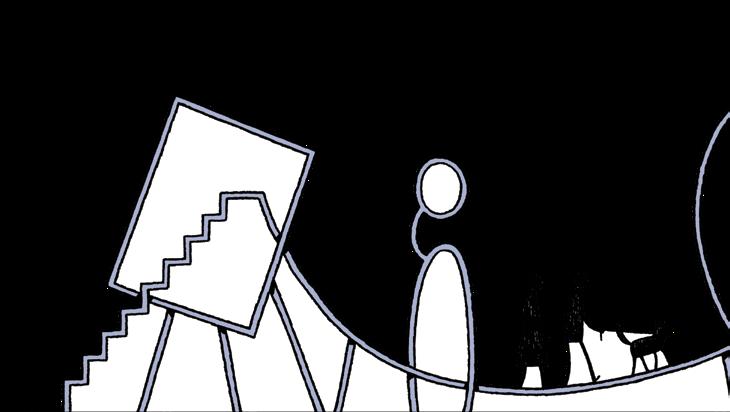opera, the powerful crowd scenes apart, lies in the music’s unfolding of that dichotomy within Ivan’s character. As Valery Gergiev, conductor of a fine 1994 Philips recording, has observed, the opera is first and foremost an exploration of the spiritual life, and what happens when that life is denied. Incidentally, the first statue of Ivan the Terrible was raised not in Stalin’s time, but in Vladimir Putin’s in 2016. Something to do with that 450-yearold Lithuanian feud, perhaps?
GOLDEN OLDIES IMOGEN THOMAS LITTLEBROOK MARLENE DIETRICH AT 120
Hear no evil: Olga (Evelina Dobracheva), Ivan the Terrible, Grange Park
eponymous maid of Pskov, love-child of the young Tsar Ivan. It’s Ivan’s discovery of his long-lost daughter that tempts him (before her death in a botched insurrection) to call off the destruction of Pskov as payback for the city’s contacts with the hated Lithuanians. The opera was brought to London in 1913, with the great Russian bass Chaliapin as Ivan. It was a sensation both musically and for the smallness of the audiences it attracted. Edwardian England was wary of the Russians and mystified by them, though Sir Thomas Beecham put the blame on English taste. The rich, he opined, supported grand opera out of habit; the self-improving poor out of curiosity. Beyond that, ‘a meat tea, followed by a visit to the pictures or the music hall’, was the nation’s entertainment of choice. Things don’t change. Even with Grange Park Opera’s 750-seat Theatre in the Woods operating at a loss-making 50-per-cent occupancy, this was the one production in an otherwise sell-out season where tickets remained available even after a well-reviewed first night. David Pountney’s decision to sharpen our sense of Tsar Ivan by playing him as Joseph Stalin was plausible enough. In reality, Stalin’s private view of Russia’s founding Tsar was that he was a sanctimonious bigot who wasn’t ruthless enough. As he told filmmaker Sergei Eisenstein, he had little sympathy with a man who, after a spell of genocidal slaughter, would retire for a period of prayer and repentance rather than getting on with more killing. The greatness of Rimsky-Korsakov’s 68 The Oldie September 2021
The year was 1954 and I was 21 and loving my job as personal assistant/ secretary to the actor-manager Donald Wolfit. Marlene Dietrich – the 120th anniversary of whose birth is in December – was been 53 and at the height of her fame. She was in London to do a season of 100 nights at the Café de Paris. The management had arranged for a different celebrity to introduce her each night. On that never-to-be-forgotten night, it was Donald’s turn and he took with him his wife, Rosalind, and me. I wish I could remember what I wore. I can’t imagine that I had anything adequate to the glittering occasion. We took our places at a prominent table just at the foot of the famous curved staircase, down which she would glide. I still have the menu. There didn’t seem to be a choice.
‘Most beautiful woman I’d ever seen’
‘There are two certainties in life, Evans: death and tax avoidance’
We dined on ‘Tranche de foie gras truffée, Consommé froid au tasse de Xeres, Filet de sole Dieppoise, Contrefilet de boeuf rôti Caprice, and Coupe de fraises et framboises Maria mignardises’. When coffee had been served, the lights dimmed. Donald rose and made his suitably theatrical speech of introduction. She may have been 53 and have already made the same entry many times that season, but the moment of Marlene’s entry was one of pure drama and pure glamour. She appeared at the top of the staircase, lit by a golden spot and apparently wearing only a sprinkle of sequins which gathered and swirled into a long slender skirt. She sang Falling in Love Again, Where Have All the Flowers Gone?, Lili Marlene and The Boys in the Backroom. All the favourites. She was the epitome of glamour and the audience loved her. Afterwards, we were invited back to her dressing room. Her fair curls were now swathed in a towel, and a dressing gown covered the sparkles. She insisted on making us a pot of tea. While we drank it, she told us about her day. She had been shopping for shoes in Oxford Street with her daughter. It had been very crowded and they hadn’t found what they wanted. She was easy company and we stayed chatting for some time. She wasn’t the glittering icon any more – more a comfortable housewife – but she was still the most beautiful woman I had ever seen. Rachel Johnson is away






































